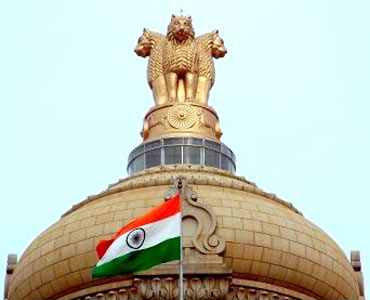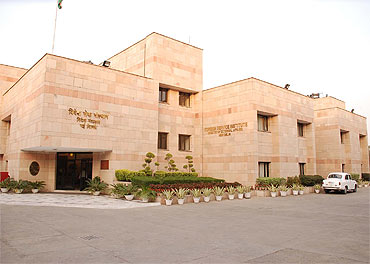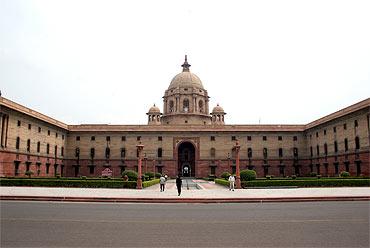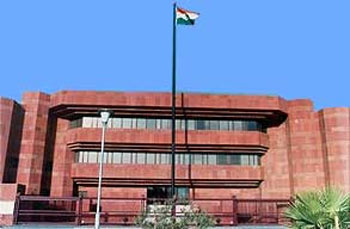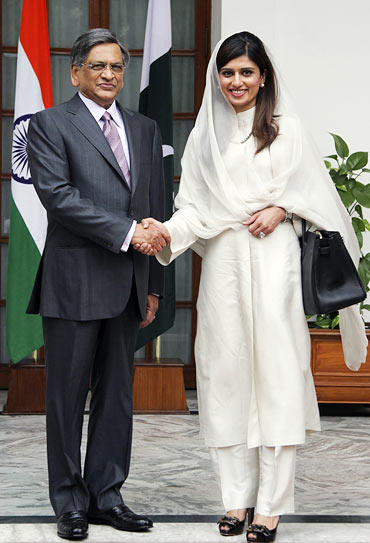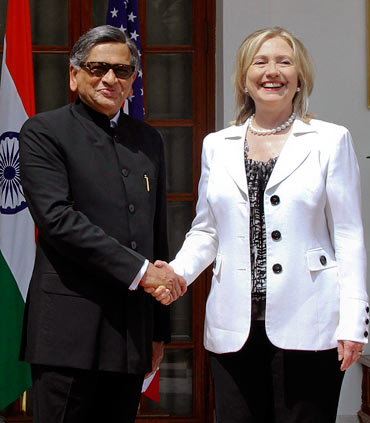 | « Back to article | Print this article |
Revealed: How IFS officers are groomed
After joining the IFS, for which one has to be generally at the top of the ranking order in Civil Services Examination (CSE) conducted by the Union Public Service Commission (UPSC) of India, one is sent to the Lal Bahadur Shastri National Academy of Administration (LBSNA) in Mussorie for training for a period of three months where she is known as Foreign Service Probationer.
After completing the three-month training, which involves training in multiple disciplines including a foreign language, horse riding and trekking in high Himalayas, a Foreign Service Probationer moves to the Foreign Service Institute located in New Delhi for further training.
Author is a writer-diplomat, an IFS officer of 2003 batch. View expressed are personal.
Revealed: How IFS officers are groomed
After the end of the training with the Foreign Service Institute a Foreign Service Probationer is attached with a Division of the Ministry of External Affairs for a period of six months for on the job training. After completing on the job training a probationer is allocated a Compulsory Foreign Language (CFL) such as Arabic, Chinese, French, German, Russian, Spanish or others as deemed fit and then she is posted in an Indian mission as Third Secretary (Language Trainee) where the probationer learns the allocated foreign language.
Revealed: How IFS officers are groomed
After being confirmed in the IFS, an IFS Officer is posted as a Second Secretary in one of the wings (Political, Economic or Commerce, Consular, Administrative or Cultural) at an Indian Embassy or as Consul at an Indian Consulate for a period of three years. During this period the officer learns political, economic, commercial, cultural, consular or administrative works from his senior colleagues at the Embassy or the Consulate.
An IFS officer can take her parents abroad but the Government provides for medical facilities of only dependent parents -- who have nobody else to look after them and have abysmally low income.
Revealed: How IFS officers are groomed
A Second Secretary in an Indian mission gets a decent accommodation of 110 sq meters but has to purchase her own car. She gets a decent foreign allowance and medical facilities besides government provided accommodation. Government provides for education fees for the children (up to 2 children only) above five years of age. Government also provides Representational Grant (RG) to entertain foreign guests.
An average day of a Second Secretary starts at 9 am in the morning with driving to the office, reading e-mails/fax-messages, making phone calls, writing notes, replying letters, briefing senior officers, following up with the Ministry of External Affairs Headquarters, attending a meetings and occasionally attending a reception hosted on the occasion of national day by another Embassy, driving back home, spending 2 to 3 hours with the family and watching news of the day before going to bed.
Revealed: How IFS officers are groomed
After completion of 9 years of service from the date of joining the IFS (including probation period), an IFS officer gets automatically promoted to the rank of Deputy Secretary. After spending approximately three years in New Delhi, an IFS officer is posted abroad for the next three years at one of the 163 Indian Missions/Posts abroad.
After completing her tenure in a given Mission/Post, the officer is again posted for three years to another Indian Mission/Post located in another country. An officer is provided for by the MEA for the transport of her baggage, car and other belongings from one country to another by air or sea.
Revealed: How IFS officers are groomed
While abroad at an Indian Mission/Post:
Third Secretary(Language Trainee)< Second Secretary < First Secretary < Counsellor < Minister < Ambassador
While in India at MEA Headquarters:
Attache < Under Secretary < Deputy Secretary < Director < Joint Secretary < Additional Secretary < Secretary
On average it takes 9 years of service to get to the rank of Deputy Secretary and 16 years of service to get to rank of Joint Secretary. Promotions up to the Director/Counsellor rank are automatic and time bound while promotion to the next level i.e. Joint Secretary is based on the Confidential Annual Performance Appraisal Reports (CAPAR) of the last ten years. A Joint Secretary is eligible to become an Ambassador abroad and head a Division in the MEA headquarters in New Delhi.
CAPARs are written by the reporting officer and reviewed by a higher ranking officer than the reporting officer. An officer has a right to appeal to the Ministry if she does not agree with the report given by the reporting or reviewing officer.
A Foreign Service officer can serve as a Regional Passport Officer (RPO) or can go on deputations to the Ministry of Defence, Prime Minister's Office, Ministry of Commerce, Department of Space or the United Nations, World Bank etc.
Author is a writer-diplomat, an IFS officer of 2003 batch. View expressed are personal.
